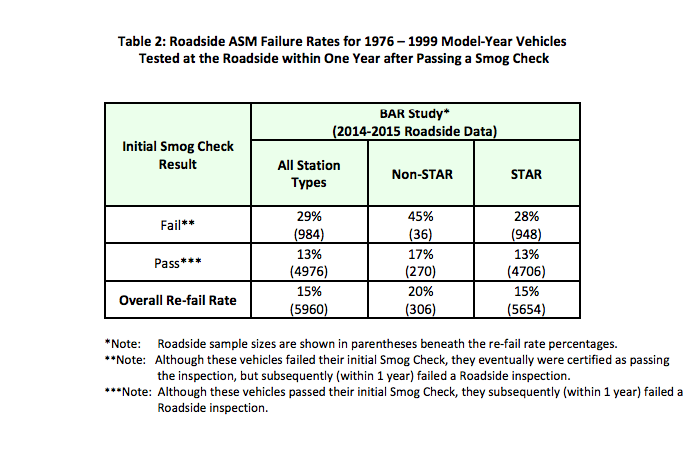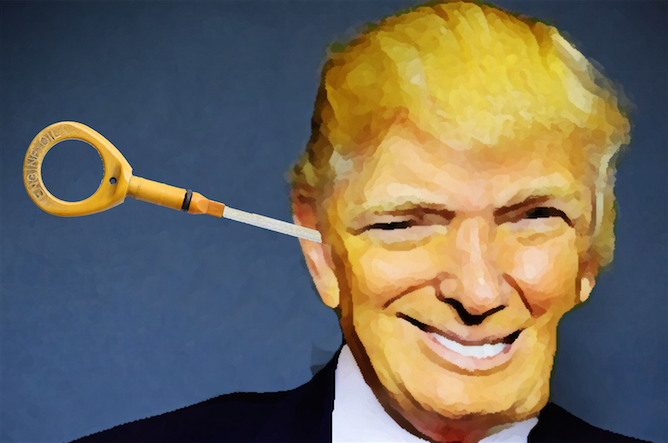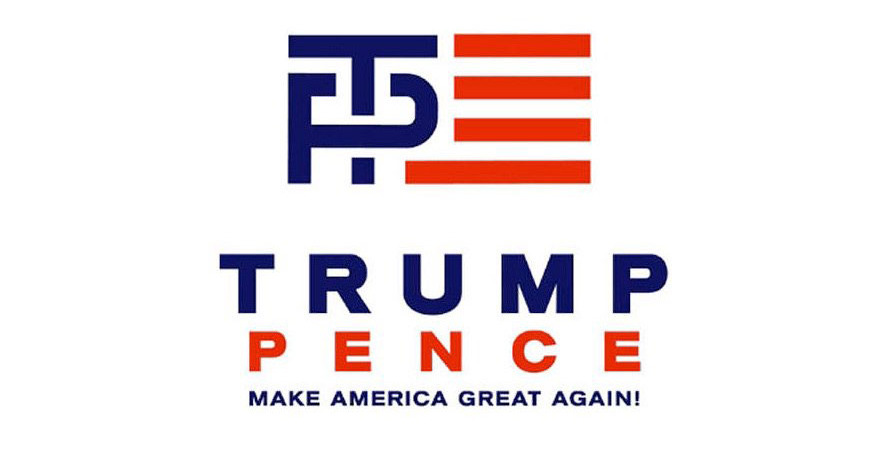San Diego's Dirty, Not-So-Little Secret
Posted by T.Collins Logan on
[Please note: this article was updated on Jan 12, 2017 with new and corrected information]

Really Bad Air
Did you know that San Diegans breathe some of the most polluted air in the country? And that the closer you live to one of our many highways, the worse your health risks will be?
Anyone who has lived in San Diego over the last decade has probably experienced this more than once: Waking up at 3:00 a.m. to an acrid, eye-watering, lung-burning stench; coughing and wheezing while rushing around to close all the windows in the vain attempt to keep the bad air outside; then burrowing back under the blankets in an equally vain attempt to escape the worst effects. Since I moved to San Diego in 2002, the frequency of these pollution events seems to be increasing. Of course, it also depends on where in San Diego you happen to live. When I had an apartment in Pacific Beach, the bad air was present almost every morning on weekdays, but quickly dissipated with the rising sun. Now, living in East County, the "home invasion" of wicked smells occurs just once or twice a week, usually in the middle of the night. Again, though, the frequency does seem to be increasing...and the intensity of the stench is getting worse.
So what is going on? Is this just a natural consequence of living in a single-driver car-addicted society? That has been a frequent criticism of neighboring Los Angeles and its surrounds, where smog events and air quality health alerts are much more prevalent. And there is data to back up the assertion that most of the smog comes from cars - along with plentiful jokes and anecdotes about Angelinos driving two blocks from their house to purchase a bottle of water. And although there are similar statistics for San Diego's increasing traffic, I think the "car culture" argument is really a massive red herring.
And here's why. Anyone who grew up in the U.S. will remember the days before emission standards, testing and control technologies. That high, almost fruity and acidic aroma from the back of a running vehicle was just a fact of life in the fifties and sixties. Cars stank. So let's call that "classic old exhaust" - or C.O.E. for short. Then, in the 1970s, health concerns prompted Clean Air legislation, and catalytic converters were required in U.S. passenger vehicles. Over time, as older cars aged out of what was driving on our streets, car exhaust smells began to change. Occasionally we would encounter the rotten egg plume of a failing catalytic converter, and there might still be an occasional 1960s VW Bug or restored Mustang that would blast us with a reminder of the good old days, but for the most part the worst offenders were being removed from the roads.
Or so I thought.
After I moved to San Diego and was assaulted by high concentrations of pre-1970s C.O.E., I just didn't understand what was happening. In Seattle I had lived right next to two major highways for years, and never had to breathe air this acrid and toxic. What was was causing this? I wrote emails to different researchers at universities in San Diego, asking what they thought the reason could be. I received no response. I called them and left messages. Still no response. I then emailed the San Diego Air Pollution Control District with the same question. I received no response. I called the San Diego APCD and left messages - twice. No response.
So I began to speculate. What could be the source of all this nasty air? Were there a growing number of cars on the road that were somehow evading emission controls? As if to confirm this suspicion, I began to notice that, while driving behind certain newer vehicles in slow traffic, I picked up on the pre-1970s C.O.E. odor. I would then look at the plates of these newer vehicles to see where the cars were from, and discovered that, most of the time, they had Baja plates from Mexico. Most of the time...but not always. Sometimes the vehicles had current California registrations. When I asked around regarding these observations, San Diego natives confirmed that not only did most Mexico vehicles not require the same emission controls as here in the U.S. (not even catalytic converters), but that many people would buy the cheaper Mexico models, bring them into the U.S., and then work out various ways to get around emissions testing and other requirements when they registered them in California. It was also not unheard of, they said, for vehicles made in the U.S. to be sold across the border, only to have their catalytic converters removed and emissions controls deactivated before being driven back into the U.S. The converters weren't needed in Mexico, after all, and were worth upwards of $100 each.
What? Seriously? Was this really that common...? And as if in answer to my incredulity, within the next couple of months I witnessed the San Diego Police Department performing "spot checks" of vehicle emissions on the side of the road. These looked like the setups police use to funnel potential DUIs into a checkpoint - with the cones, flashing lights and multiple police cars. But instead of having drivers take a breathalyzer, the police tested the exhaust. Here is more on these random "Mobile Smog Checks:"
http://www.mercurynews.com/2013/05/10/surprise-bay-area-drivers-have-cars-examined-at-random-smog-checkpoints/
https://www.youtube.com/watch?v=BoTCSRgvPaM
http://www.policestateusa.com/2013/routine-smog-checkpoints-impede-california-roads/
Apparently, these random checks could become more sophisticated and widespread in the near future:
http://www.smogtips.com/remote_sensing.cfm
According to a California Highway Patrol contact that I spoke with, the mobile smog checkpoints the CHP facilitates are an effort of the California DMV and BAR to ensure that local Smog Check stations and technicians are not circumventing good practices for emissions testing. As such, the mobile testing stations are a potential source of revenue for the State, as expanded by AB 2289 (see https://smogcheck.ca.gov/pdf/Citations_Penalties_AB2289_2_13_13.pdf). In addition, one vehicle testing resource I spoke with also indicated that some mobile stations are set up specifically in areas where local communities have expressed concern about potential violators. In both cases, the ongoing investment in technology and human resources makes it clear that uncorrected emissions violations and re-failures of corrected issues are a real problem. Here are some charts from the BAR's 2016 Smog Check Performance Report that use this roadside data to illustrate the long-term and ongoing problem:


That said, I didn't think much more about this until a few more years had passed, and the C.O.E. events became worse and more frequent. Eventually, after my wife Mollie began to suffer serious health effects from the bad night air - and I myself was getting headaches and interrupted sleep when the stench woke me up - I filed a formal complaint with e APCD. At long last I received a call from an inspector at that agency. And you know what he said? Unless I could pinpoint the source of the pollution, and the exact times it regularly occurred, his agency could do nothing. I explained that I thought it was from cars without emission controls, and was the most extreme around 3 a.m., though at irregular intervals of days or weeks. Apologizing, he indicated that "general vehicle traffic" was not under his agency's jurisdiction. He apologized, but said there was nothing he could do.
I then contacted the Ombudsman's office of the California Air Resources Board, where I was invited to make public comment at a Sacramento Board meeting. As I live in San Diego that's not something I can easily do, so I was then referred to an emissions researcher at a private company. He was extremely helpful, and clarified many of the moving parts involved in regulating emissions here in California. His recommendation was that I contact the Bureau of Automotive Repairs, as they are the agency who would be most involved with end-user violations here in San Diego County. I then filed a complaint with the BAR, so...we shall see how that pans out. However, BAR can't do anything about polluting vehicles with Mexican registrations that are driving across the border....
So, apart from moving away from the horrific San Diego air for the sake of our health, what are the options?
First, here are some points of research to consider:
1) According to https://transborder.bts.gov, as of July 2016 a combined total of about 100,000 trucks and 2.5 Million passenger vehicles were entering California from Mexico every month on average, and these numbers remained fairly constant throughout the previous year as well. From the known profile of commuting and commercial activity between U.S. and Mexico, we can also be fairly certain that the majority of these vehicles do not meet U.S. vehicle emission standards, and that many if not most do not have catalytic converters.
2) The only substantive consideration of pollution impacts from Mexico's vehicles was triggered by some NAFTA-related laws and court rulings about truck transport - and only truck transport. These allowed more trucks to enter the U.S. - and travel further into the U.S. - without complying with U.S. emissions standards (see https://www.arb.ca.gov/enf/hdvip/bip/naftamextrk.pdf). At one point, the EPA stepped in to provide Mexican truck-drivers at some border crossings with upgrade grants for their vehicles to bring them up U.S. standards (see http://archive.azcentral.com/news/articles/2011/04/11/20110411arizona-mexico-truck-pollution-regulation.html). In a somewhat ironic development, however, Mexico then loosened restrictions on pre-2007 U.S. truck sales in Mexico, so that any U.S. fleets that weren't compliant with 2007 emissions standards could be unloaded by U.S. companies there. This, in combination with the NAFTA-related increase in Mexican manufacturing and exports, meant that a large number of pre-2007 trucks were snapped up by Mexican transporters...and driven right back across the border to either pollute U.S. air...or receive taxpayer-funded EPA upgrades (see http://www.logisticsmgmt.com/article/nafta_blowback_fueling_used_truck_boom_south_of_border_in_mexico). Again, however, this is only attempting to address commercial trucking, not passenger vehicles.
4) According to the EPA, transportation is responsible for some 50% of nitrogen oxide, 30% of VOCs, and 20% of particulate pollution (see https://www.epa.gov/air-pollution-transportation). Although non-road sources (trains, boats, planes, etc.) do contribute to these numbers, the most acutely felt impacts of pollution in urban areas are from on-road vehicles (cars, trucks, etc.). And the denser the traffic and closer the proximity of residences to major traffic routes, the greater the health risk to those residents (see http://now.tufts.edu/articles/big-road-blues-pollution-highways).
5) The American Lung Association has consistently rated air quality in San Diego with an "F," their worst rating. This is mainly the result of ozone pollution, which is of course a consequence of fuel combustion - roughly half of which can be linked to on-road transportation for most of the year. However, historically and currently, nearly all other pollutants (particulates, CO, NO2, etc.) have also sustained higher averages in San Diego and the rest of Southern California (see http://www.usa.com/san-diego-ca-air-quality.htm).
6) Health impacts from this level of pollution are severe. Many researchers have made the comparison between living beside a highway and smoking. And even living in a town with moderate vehicle pollution levels can effect health over time - in particular, ozone and particulates increase risks for cardiovascular and respiratory diseases, as well as risks for cancer, reproductive harm, developmental harm and premature death (see https://www.niehs.nih.gov/health/topics/agents/air-pollution/ and http://www.who.int/mediacentre/factsheets/fs313/en/).
7) Catalytic converters reduce emissions of CO, hydrocarbons, VOCs and NOx, which in combination with sunlight create ozone. ("Ozone formation is driven by two major classes of directly emitted precursors: nitrogen oxides (NOx) and volatile organic compounds (VOC). The relation between O3, NOx and VOC is driven by complex nonlinear photochemistry" - see http://www-personal.umich.edu/~sillman/ozone.htm). In combination with other, now standard emission control technologies in U.S. vehicles, catalytic converters reduce these emissions by up to 90%.
The 72% Solution
Taken altogether, where does all of this data lead us? Well, we have a good approximation of how many vehicles are crossing the California border each day, to drive through and around San Diego County without catalytic converters. We don't have exact figures on how many vehicles registered on this side of the border are trying to cheat on smog tests, but from my informal records of the routine assaults on my olfactory I've experienced while driving in San Diego over the past decade, I think that number would have to be at least 10%. Without exact numbers or AADT data that is user-friendly from California DOT, can we come up with a rough guestimate of what percentage of vehicles are driving around San Diego County each day that might be categorized as "gross emitters," or contributing directly to unhealthy levels of pollution? Sure. Just using AADT for I-5, I-8 and I-15 to propose a baseline (from http://www.interstate-guide.com/), then subtracting the in-bound cross-border traffic from Mexico in combination with an estimate of local smog-cheaters, how about:
(87,000 + 65,000 [10% of 739K-87K]) of 739,000 total vehicles = 20.57%
If we then adjust for trucks (which average just 3.7% of total traffic, but contribute 11% of on-road emission volumes), we arrive at a possible number of 22.83% of total vehicles on the road daily. But that isn't an accurate percentage of the pollutants those vehicles contribute, since we haven't adjusted for the lack of catalytic converters. Being generous, we could say that this 22.83% actually contributes eight times the ozone precursor pollution (per vehicle) compared to vehicles with catalyzed emissions. Which is how we can arrive at roughly 72% of the ozone-precursor pollution from on-road vehicles being produced by vehicles without catalytic converters. If my guestimates are correct, then just over half of these are vehicles driving legally across the border, and just under half are being operated illegally by folks who circumvent smog checks.
72%. And we wonder why, despite such rigorous smog enforcements on California drivers, Southern California has such crappy air....
Even if these numbers aren't exact, we're still talking about an enormous volume of PREVENTABLE pollution here. If I'm only half-right, addressing vehicular polluters from Mexico - and intercepting smog cheaters and re-fails of smog-checked vehicles that reside in San Diego County - would have a huge impact on quality of life and health in San Diego.
It would sure be nifty if this unhealthy problem could be addressed soon - before my wife and I are compelled to leave San Diego for good.
For more info:
U.S. Air Pollution Wiki:
https://en.wikipedia.org/wiki/Air_pollution_in_the_United_States
California Traffic Census:
http://dot.ca.gov/trafficops/census/
San Diego GHG Emission Data for On-Road Vehicles:
http://catcher.sandiego.edu/items/epic/GHG-On-Road1.pdf.pdf

San Diego Smog circa 1974 - Photo Credit Don Taylor, Creative Commons License 2.0
Really Bad Air
Did you know that San Diegans breathe some of the most polluted air in the country? And that the closer you live to one of our many highways, the worse your health risks will be?
Anyone who has lived in San Diego over the last decade has probably experienced this more than once: Waking up at 3:00 a.m. to an acrid, eye-watering, lung-burning stench; coughing and wheezing while rushing around to close all the windows in the vain attempt to keep the bad air outside; then burrowing back under the blankets in an equally vain attempt to escape the worst effects. Since I moved to San Diego in 2002, the frequency of these pollution events seems to be increasing. Of course, it also depends on where in San Diego you happen to live. When I had an apartment in Pacific Beach, the bad air was present almost every morning on weekdays, but quickly dissipated with the rising sun. Now, living in East County, the "home invasion" of wicked smells occurs just once or twice a week, usually in the middle of the night. Again, though, the frequency does seem to be increasing...and the intensity of the stench is getting worse.
So what is going on? Is this just a natural consequence of living in a single-driver car-addicted society? That has been a frequent criticism of neighboring Los Angeles and its surrounds, where smog events and air quality health alerts are much more prevalent. And there is data to back up the assertion that most of the smog comes from cars - along with plentiful jokes and anecdotes about Angelinos driving two blocks from their house to purchase a bottle of water. And although there are similar statistics for San Diego's increasing traffic, I think the "car culture" argument is really a massive red herring.
And here's why. Anyone who grew up in the U.S. will remember the days before emission standards, testing and control technologies. That high, almost fruity and acidic aroma from the back of a running vehicle was just a fact of life in the fifties and sixties. Cars stank. So let's call that "classic old exhaust" - or C.O.E. for short. Then, in the 1970s, health concerns prompted Clean Air legislation, and catalytic converters were required in U.S. passenger vehicles. Over time, as older cars aged out of what was driving on our streets, car exhaust smells began to change. Occasionally we would encounter the rotten egg plume of a failing catalytic converter, and there might still be an occasional 1960s VW Bug or restored Mustang that would blast us with a reminder of the good old days, but for the most part the worst offenders were being removed from the roads.
Or so I thought.
After I moved to San Diego and was assaulted by high concentrations of pre-1970s C.O.E., I just didn't understand what was happening. In Seattle I had lived right next to two major highways for years, and never had to breathe air this acrid and toxic. What was was causing this? I wrote emails to different researchers at universities in San Diego, asking what they thought the reason could be. I received no response. I called them and left messages. Still no response. I then emailed the San Diego Air Pollution Control District with the same question. I received no response. I called the San Diego APCD and left messages - twice. No response.
So I began to speculate. What could be the source of all this nasty air? Were there a growing number of cars on the road that were somehow evading emission controls? As if to confirm this suspicion, I began to notice that, while driving behind certain newer vehicles in slow traffic, I picked up on the pre-1970s C.O.E. odor. I would then look at the plates of these newer vehicles to see where the cars were from, and discovered that, most of the time, they had Baja plates from Mexico. Most of the time...but not always. Sometimes the vehicles had current California registrations. When I asked around regarding these observations, San Diego natives confirmed that not only did most Mexico vehicles not require the same emission controls as here in the U.S. (not even catalytic converters), but that many people would buy the cheaper Mexico models, bring them into the U.S., and then work out various ways to get around emissions testing and other requirements when they registered them in California. It was also not unheard of, they said, for vehicles made in the U.S. to be sold across the border, only to have their catalytic converters removed and emissions controls deactivated before being driven back into the U.S. The converters weren't needed in Mexico, after all, and were worth upwards of $100 each.
What? Seriously? Was this really that common...? And as if in answer to my incredulity, within the next couple of months I witnessed the San Diego Police Department performing "spot checks" of vehicle emissions on the side of the road. These looked like the setups police use to funnel potential DUIs into a checkpoint - with the cones, flashing lights and multiple police cars. But instead of having drivers take a breathalyzer, the police tested the exhaust. Here is more on these random "Mobile Smog Checks:"
http://www.mercurynews.com/2013/05/10/surprise-bay-area-drivers-have-cars-examined-at-random-smog-checkpoints/
https://www.youtube.com/watch?v=BoTCSRgvPaM
http://www.policestateusa.com/2013/routine-smog-checkpoints-impede-california-roads/
Apparently, these random checks could become more sophisticated and widespread in the near future:
http://www.smogtips.com/remote_sensing.cfm
According to a California Highway Patrol contact that I spoke with, the mobile smog checkpoints the CHP facilitates are an effort of the California DMV and BAR to ensure that local Smog Check stations and technicians are not circumventing good practices for emissions testing. As such, the mobile testing stations are a potential source of revenue for the State, as expanded by AB 2289 (see https://smogcheck.ca.gov/pdf/Citations_Penalties_AB2289_2_13_13.pdf). In addition, one vehicle testing resource I spoke with also indicated that some mobile stations are set up specifically in areas where local communities have expressed concern about potential violators. In both cases, the ongoing investment in technology and human resources makes it clear that uncorrected emissions violations and re-failures of corrected issues are a real problem. Here are some charts from the BAR's 2016 Smog Check Performance Report that use this roadside data to illustrate the long-term and ongoing problem:


That said, I didn't think much more about this until a few more years had passed, and the C.O.E. events became worse and more frequent. Eventually, after my wife Mollie began to suffer serious health effects from the bad night air - and I myself was getting headaches and interrupted sleep when the stench woke me up - I filed a formal complaint with e APCD. At long last I received a call from an inspector at that agency. And you know what he said? Unless I could pinpoint the source of the pollution, and the exact times it regularly occurred, his agency could do nothing. I explained that I thought it was from cars without emission controls, and was the most extreme around 3 a.m., though at irregular intervals of days or weeks. Apologizing, he indicated that "general vehicle traffic" was not under his agency's jurisdiction. He apologized, but said there was nothing he could do.
I then contacted the Ombudsman's office of the California Air Resources Board, where I was invited to make public comment at a Sacramento Board meeting. As I live in San Diego that's not something I can easily do, so I was then referred to an emissions researcher at a private company. He was extremely helpful, and clarified many of the moving parts involved in regulating emissions here in California. His recommendation was that I contact the Bureau of Automotive Repairs, as they are the agency who would be most involved with end-user violations here in San Diego County. I then filed a complaint with the BAR, so...we shall see how that pans out. However, BAR can't do anything about polluting vehicles with Mexican registrations that are driving across the border....
So, apart from moving away from the horrific San Diego air for the sake of our health, what are the options?
First, here are some points of research to consider:
1) According to https://transborder.bts.gov, as of July 2016 a combined total of about 100,000 trucks and 2.5 Million passenger vehicles were entering California from Mexico every month on average, and these numbers remained fairly constant throughout the previous year as well. From the known profile of commuting and commercial activity between U.S. and Mexico, we can also be fairly certain that the majority of these vehicles do not meet U.S. vehicle emission standards, and that many if not most do not have catalytic converters.
2) The only substantive consideration of pollution impacts from Mexico's vehicles was triggered by some NAFTA-related laws and court rulings about truck transport - and only truck transport. These allowed more trucks to enter the U.S. - and travel further into the U.S. - without complying with U.S. emissions standards (see https://www.arb.ca.gov/enf/hdvip/bip/naftamextrk.pdf). At one point, the EPA stepped in to provide Mexican truck-drivers at some border crossings with upgrade grants for their vehicles to bring them up U.S. standards (see http://archive.azcentral.com/news/articles/2011/04/11/20110411arizona-mexico-truck-pollution-regulation.html). In a somewhat ironic development, however, Mexico then loosened restrictions on pre-2007 U.S. truck sales in Mexico, so that any U.S. fleets that weren't compliant with 2007 emissions standards could be unloaded by U.S. companies there. This, in combination with the NAFTA-related increase in Mexican manufacturing and exports, meant that a large number of pre-2007 trucks were snapped up by Mexican transporters...and driven right back across the border to either pollute U.S. air...or receive taxpayer-funded EPA upgrades (see http://www.logisticsmgmt.com/article/nafta_blowback_fueling_used_truck_boom_south_of_border_in_mexico). Again, however, this is only attempting to address commercial trucking, not passenger vehicles.
4) According to the EPA, transportation is responsible for some 50% of nitrogen oxide, 30% of VOCs, and 20% of particulate pollution (see https://www.epa.gov/air-pollution-transportation). Although non-road sources (trains, boats, planes, etc.) do contribute to these numbers, the most acutely felt impacts of pollution in urban areas are from on-road vehicles (cars, trucks, etc.). And the denser the traffic and closer the proximity of residences to major traffic routes, the greater the health risk to those residents (see http://now.tufts.edu/articles/big-road-blues-pollution-highways).
5) The American Lung Association has consistently rated air quality in San Diego with an "F," their worst rating. This is mainly the result of ozone pollution, which is of course a consequence of fuel combustion - roughly half of which can be linked to on-road transportation for most of the year. However, historically and currently, nearly all other pollutants (particulates, CO, NO2, etc.) have also sustained higher averages in San Diego and the rest of Southern California (see http://www.usa.com/san-diego-ca-air-quality.htm).
6) Health impacts from this level of pollution are severe. Many researchers have made the comparison between living beside a highway and smoking. And even living in a town with moderate vehicle pollution levels can effect health over time - in particular, ozone and particulates increase risks for cardiovascular and respiratory diseases, as well as risks for cancer, reproductive harm, developmental harm and premature death (see https://www.niehs.nih.gov/health/topics/agents/air-pollution/ and http://www.who.int/mediacentre/factsheets/fs313/en/).
7) Catalytic converters reduce emissions of CO, hydrocarbons, VOCs and NOx, which in combination with sunlight create ozone. ("Ozone formation is driven by two major classes of directly emitted precursors: nitrogen oxides (NOx) and volatile organic compounds (VOC). The relation between O3, NOx and VOC is driven by complex nonlinear photochemistry" - see http://www-personal.umich.edu/~sillman/ozone.htm). In combination with other, now standard emission control technologies in U.S. vehicles, catalytic converters reduce these emissions by up to 90%.
The 72% Solution
Taken altogether, where does all of this data lead us? Well, we have a good approximation of how many vehicles are crossing the California border each day, to drive through and around San Diego County without catalytic converters. We don't have exact figures on how many vehicles registered on this side of the border are trying to cheat on smog tests, but from my informal records of the routine assaults on my olfactory I've experienced while driving in San Diego over the past decade, I think that number would have to be at least 10%. Without exact numbers or AADT data that is user-friendly from California DOT, can we come up with a rough guestimate of what percentage of vehicles are driving around San Diego County each day that might be categorized as "gross emitters," or contributing directly to unhealthy levels of pollution? Sure. Just using AADT for I-5, I-8 and I-15 to propose a baseline (from http://www.interstate-guide.com/), then subtracting the in-bound cross-border traffic from Mexico in combination with an estimate of local smog-cheaters, how about:
(87,000 + 65,000 [10% of 739K-87K]) of 739,000 total vehicles = 20.57%
If we then adjust for trucks (which average just 3.7% of total traffic, but contribute 11% of on-road emission volumes), we arrive at a possible number of 22.83% of total vehicles on the road daily. But that isn't an accurate percentage of the pollutants those vehicles contribute, since we haven't adjusted for the lack of catalytic converters. Being generous, we could say that this 22.83% actually contributes eight times the ozone precursor pollution (per vehicle) compared to vehicles with catalyzed emissions. Which is how we can arrive at roughly 72% of the ozone-precursor pollution from on-road vehicles being produced by vehicles without catalytic converters. If my guestimates are correct, then just over half of these are vehicles driving legally across the border, and just under half are being operated illegally by folks who circumvent smog checks.
72%. And we wonder why, despite such rigorous smog enforcements on California drivers, Southern California has such crappy air....
Even if these numbers aren't exact, we're still talking about an enormous volume of PREVENTABLE pollution here. If I'm only half-right, addressing vehicular polluters from Mexico - and intercepting smog cheaters and re-fails of smog-checked vehicles that reside in San Diego County - would have a huge impact on quality of life and health in San Diego.
It would sure be nifty if this unhealthy problem could be addressed soon - before my wife and I are compelled to leave San Diego for good.
For more info:
U.S. Air Pollution Wiki:
https://en.wikipedia.org/wiki/Air_pollution_in_the_United_States
California Traffic Census:
http://dot.ca.gov/trafficops/census/
San Diego GHG Emission Data for On-Road Vehicles:
http://catcher.sandiego.edu/items/epic/GHG-On-Road1.pdf.pdf







